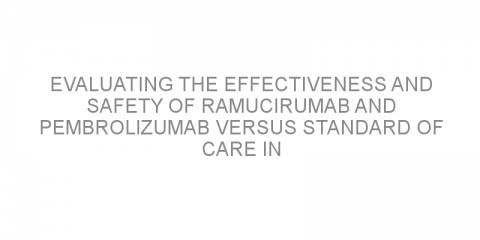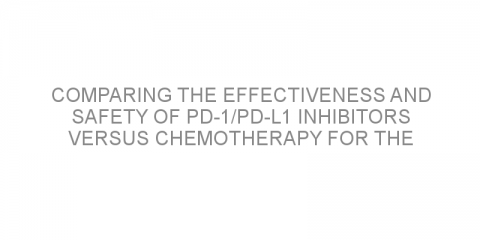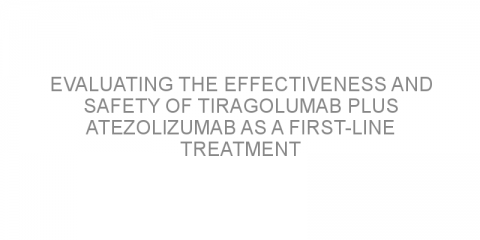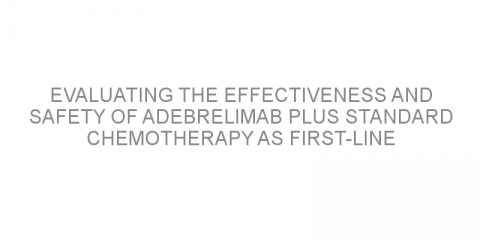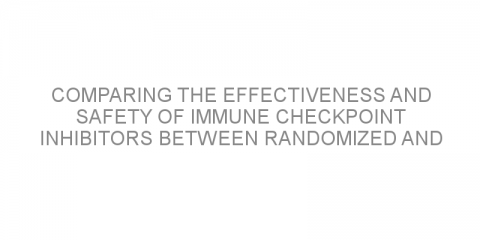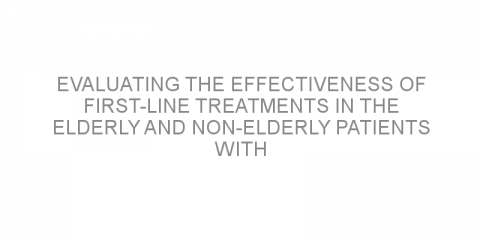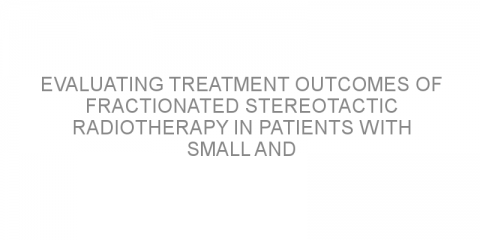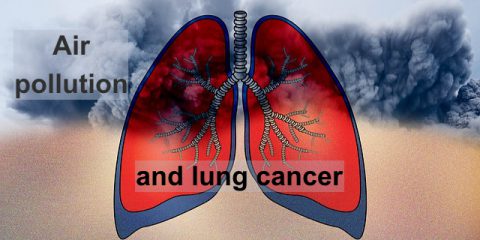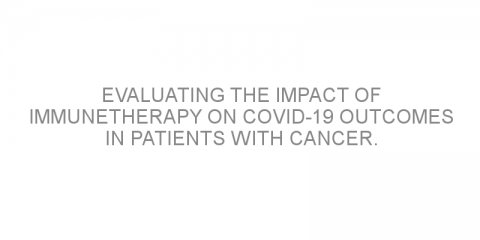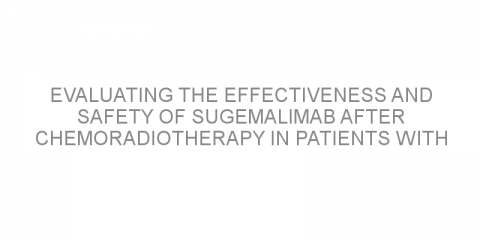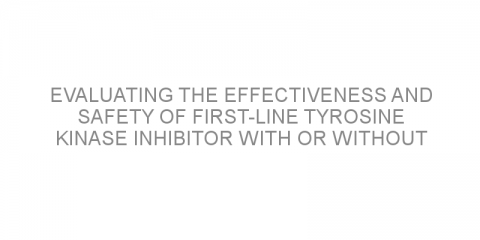In a nutshell This study investigated the effectiveness and safety outcomes of ramucirumab (Cyramza) and pembrolizumab (Keytruda) versus standard of care (SOC) in previously treated patients with advanced non-small cell lung cancer (NSCLC). The data showed that ramucirumab and pembrolizumab significantly improved overall survival compared with SOC in...
Read MoreLung cancer Posts on Medivizor
Comparing the effectiveness and safety of PD-1/PD-L1 inhibitors versus chemotherapy for the treatment of patients with non-small-cell lung cancer.
In a nutshell This study compared the effectiveness and safety outcomes of different programmed death-1 (PD-1)/PD ligand 1 (PD-L1) inhibitors versus chemotherapy for the treatment of patients with non-small-cell lung cancer (NSCLC). The data showed that PD-1/PD-L1 inhibitors were safer and more effective than chemotherapy with cemiplimab (Libtayo)...
Read MoreEvaluating the effectiveness and safety of tiragolumab plus atezolizumab as a first-line treatment for patients with non-small cell lung cancer.
In a nutshell This study evaluated the effectiveness and safety outcomes of atezolizumab (Tecentriq) alone or with tiragolumab (MTIG7192A) as a first-line treatment for patients with non-small cell lung cancer (NSCLC). The data showed that tiragolumab plus atezolizumab significantly improved the objective response rate and the survival without...
Read MoreEvaluating the effectiveness and safety of adebrelimab plus standard chemotherapy as first-line treatment for extensive-stage small cell lung cancer.
In a nutshell This study investigated the effectiveness and safety outcomes of adebrelimab (SHR-1316) plus carboplatin (Paraplatin) and etoposide (Etopophos)-based chemotherapy as first-line treatment for extensive-stage (ES) small-cell lung cancer (SCLC). The data showed that adebrelimab added to standard chemotherapy as first-line treatment...
Read MoreComparing the effectiveness and safety of immune checkpoint inhibitors between randomized and real-world studies in patients with advanced NSCLC or melanoma.
In a nutshell This study compared the effectiveness and safety of immune checkpoint inhibitors (ICIs) between randomized and real-world studies in patients with advanced non-small cell lung cancer (NSCLC) or melanoma. The data showed that ICIs were similarly effective and safe in both randomized and real-world studies for these patients. Some background...
Read MoreEvaluating the effectiveness of first-line treatments in the elderly and non-elderly patients with advanced EGFR-mutated NSCLC.
In a nutshell This study evaluated the effectiveness of different first-line treatments in elderly and non-elderly patients with advanced epidermal growth factor receptor (EGFR)-mutated non-small cell lung cancer (NSCLC). The data showed that osimertinib (Tagrisso) was the best treatment regimen to improve survival without cancer worsening in elderly...
Read MoreEvaluating treatment outcomes of fractionated stereotactic radiotherapy in patients with small and moderate-sized brain metastases.
In a nutshell This study investigated the effectiveness and safety of fractionated stereotactic radiation therapy (FSRT) for patients with small and moderate-sized brain metastases (BM). The data showed that FSRT was safe and effective in patients with BM of any size with excellent local control. Some background Stereotactic radiosurgery (SRS) is...
Read MoreAir Pollution Links to Lung Cancer
While smoking remains the primary cause of lung cancer, 10 – 20% of people who develop non-small cell lung cancer (NSCLC) never smoked. NSCLC in non-smokers happens more often to women, and at an earlier age, than it does in smokers. What would cause cancer to develop without smoking? [1] One theory is that environmental factors,...
Read MoreEvaluating the impact of immunetherapy on COVID-19 outcomes in patients with cancer.
In a nutshell This study evaluated the impact of immune checkpoint inhibitors (ICIs) on COVID-19 outcomes in patients with cancer. The data showed that the use of ICI treatment before COVID-19 infection does not affect the disease severity or survival outcomes. This study supports the continued use of ICIs in cancer patients during the pandemic. Some...
Read MoreEvaluating the effectiveness and safety of sugemalimab after chemoradiotherapy in patients with unresectable stage III non-small cell lung cancer.
In a nutshell This study investigated the effectiveness and safety of sugemalimab (Cejemly) after treatment with concurrent or sequential chemoradiotherapy (CRT) in patients with unresectable stage III non-small cell lung cancer (NSCLC). The data showed that sugemalimab significantly increased the survival without cancer worsening with manageable...
Read MoreBiomarkers, Combination Therapy, and Lung Cancer
KRAS, one gene present in some cancers, was considered “undruggable” for years.[1] Mutated KRAS is an important target for patients with non-small cell lung cancer (NSCLC) because it’s present in 20-25% of cases.[2] Finally, one drug, sotorasib (Lumakras), is approved to treat one mutant form of KRAS gene, KRAS G12C.[3] This mutation appears in...
Read MoreEvaluating the effectiveness and safety of first-line tyrosine kinase inhibitor with or without radiotherapy for the treatment of patients with oligometastatic EGFR-mutated NSCLC.
In a nutshell This study evaluated the effectiveness and safety of first-line tyrosine kinase inhibitors (TKIs) with or without radiotherapy (RT) for the treatment of patients with oligometastatic (OM) non-small-cell lung cancer (NSCLC) having genetic mutations in the epidermal growth factor receptor (EGFR). The data showed that TKI plus RT was safe and...
Read More
